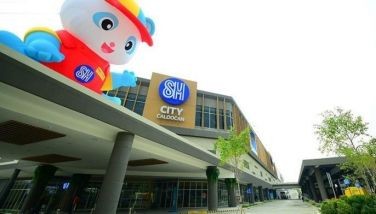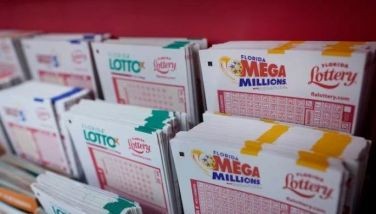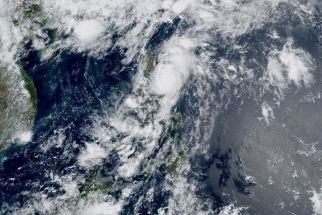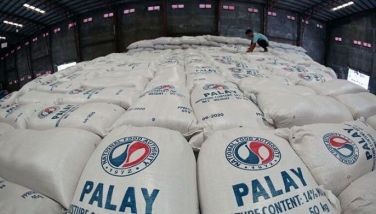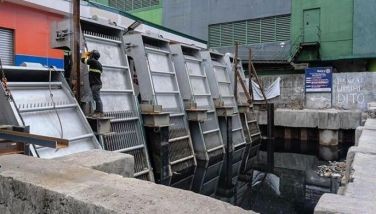SMC buys stake in PAL
MANILA, Philippines - Taipan Lucio Tan has ceded minority stake as well as management control of flag carrier Philippine Airlines (PAL) to conglomerate San Miguel Corp. (SMC).
In an agreement signed Tuesday night, Trustmark Holdings Corp. and Zuma Holdings and Management Corp., the holding companies of PAL and Air Philippines Corp., respectively, will issue new shares to San Miguel Equity Investments Inc., a wholly owned subsidiary of SMC. Air Phil is PAL’s low cost subsidiary.
Tan, however, will retain chairmanship of PAL.
A joint statement said SMC “welcomes the opportunity to participate in the refleeting and modernization plans of the two airlines.”
PAL spokeswoman Cielo Villaluna said the deal was signed by Tan and SMC president Ramon Ang late Tuesday.
The joint statement, as well as Villaluna’s, did not reveal further details, such as the size of the stake or the amount of money involved. “That is all we are willing to say at the moment,” Villaluna said.
But Ang said his group is forking over $500 million for a 49 percent stake in PAL.
Due to lingering high fuel costs, PAL suffered a total comprehensive loss of $33.5 million for its fiscal year’s third quarter covering October to December 2011.
The flag carrier said total revenues dropped 3.8 percent to $386 million for the third quarter of 2011 compared to the same period in 2010.
Company officials pointed out that during the period, PAL experienced weak passenger demand as well as declining cargo markets as the world economy struggled to recover.
While there were improvements in yields for both passenger and cargo compared with the same period last year, load factors lagged behind, the airline reported.
Total operating expenses amounted to $419.5 million, up by $34.8 million or nine percent over the same quarter in 2010. Jet fuel costs continued to put pressure on the airline’s bottom line as fuel prices rose to $129.75 per barrel in the third quarter from an average of $100.96 per barrel in the same period the previous year.
PAL was also forced to cut hundreds of flights in September after a day-long wildcat strike by ground crew who were protesting the outsourcing of 2,600 catering, airport services and call centre reservation jobs.
It took the airline more than a month to cut the flight backlog.
SMC,, in contrast, is flush with cash and has been aggressively expanding its business portfolio.
The brewer, which is also Southeast Asia’s largest food company, began its successful diversification strategy a decade ago.
Its acquisitions include Petron, the country’s largest oil refiner, US giant Exxon Mobil’s refinery and petrol retail stations in Malaysia, and a third of Manila Electric Co.
SMC has also embarked on infrastructure projects in the Philippines, including the building of toll highways, rail systems and an airport.
Tan and Ang said the development would allow the two airlines to strengthen operations and stay competitive with the implementation of PAL and Air Phil’s fleet modernization program.
‘Marriage of equals’
Astro del Castillo, managing head of First Grade Holdings Inc., called the deal a marriage of equals.
“There is good synergy and will complement other businesses of the two groups. For San Miguel, PAL would be a good marketing vehicle to further attract foreign and domestic tourists especially with its foray into road and airport infrastructure,” Del Castillo said.
SMC is shelling out around $300 million to modernize and set up new tourism amenities at the Godofredo P. Ramos airport in Caticlan, the main gateway to the world-famous Boracay Island. It is also keen on participating in the public bidding for the public-private partnership airport contracts for Palawan, Bohol and Caraga (Agusan).
Del Castillo said PAL, for its part, is expected to benefit from SMC’s ownership of the nation’s largest oil refiner and retailer Petron Corp. Petron supplies four percent of its total domestic sales volume to PAL.
Del Castillo said it would take time for PAL to contribute to SMC’s bottomline. “It will take time just like any other acquisition. Give it three to four years,” he said.
According to Bloomberg’s data, SMC, which in recent years has been expanding its business empire from its traditional food and drinks portfolio, has wrapped up 25 deals with an aggregate value of at least $4.76 billion since 2006.
Tan acquired PAL - then a state-owned monopoly - in 1995 when it was put up for privatization.
Del Castillo said the deal could also be a stepping stone for more partnerships between the two corporate giants.
“It’s a known fact that Mr. Tan has been quite conservative in entertaining other investors. This deal has opened another door for the SMC Group to look at other companies that Mr. Tan might sell in the future,” he said.
The business community is rife with rumors that most of Tan’s businesses are for sale except his property and brewery businesses, which have steadily contributed to the group’s coffers.
There were also speculations that succession was an issue especially after a falling out with his brother and business partner Mariano Tanenglian.
Mariano had even volunteered to testify against his brother Lucio in the Marcos wealth cases. Earlier reports said Mariano had been considered to run the Tan empire until the line of succession had been clearly drawn.
Tan had also ceded control of Fortune Tobacco to Philip Morris, maker of Marlboro, in 2010 despite his company’s having the bigger market share at 60 percent.
Fortune Tobacco has been the indisputable leader in the country’s cigarette market for decades.
Tan-owned banks Philippine National Bank and Allied Bank are also moving to complete their full integration within the next 18 months to create the country’s fifth largest bank, a move seen as a prelude to the sale of Tan’s banking interests.
Under the plan, PNB will be the surviving entity. The combined entity will have a total asset base of P514 billion and a distribution network of 646 branches.
Meanwhile, some analysts have lauded Tan for managing to keep PAL afloat despite being besieged by labor problems, tough competition from budget airlines, and skyrocketing fuel prices.
PAL staged a remarkable turnaround, emerging from receivership in less than a decade. It briefly ceased operations in 1998, crumbling under the weight of bad loans and labor problems. It reopened after creditors agreed on a restructuring plan.
From a peak of more than $2 billion, PAL’s debt has significantly been trimmed to just around $900 million. PAL recently spun off non-core business such as catering and ground handling services to boost profitability. with Zinnia de la Peña
- Latest
- Trending










